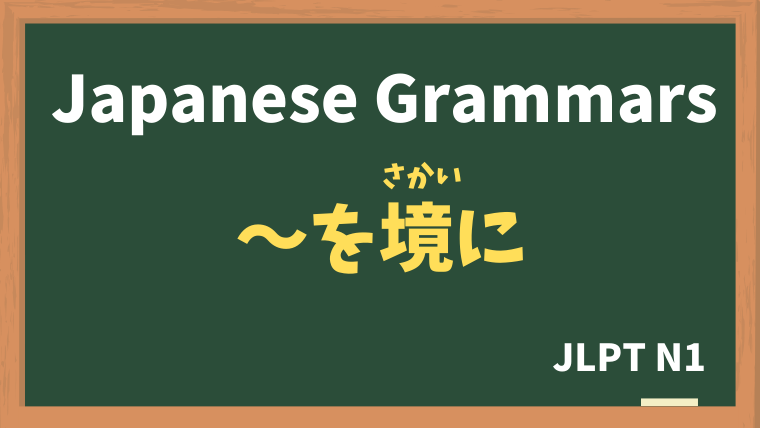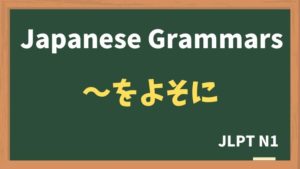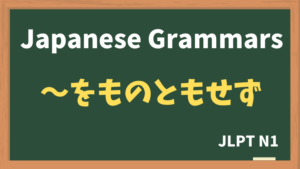
Explanation:〜を境に
fa-check-circleMeaning
"〜の時から / 〜をしてから / 〜をきっかけに"
「〜」の前と後で、状況が大きな変化があることを表します。
Used to indicate a turning point or a significant change that occurs after a particular event or moment. It translates to "from (that point) on" or "since" and is used to highlight how things are different before and after a certain event, often marking a shift in someone's life, a trend, or a situation.
fa-check-circleForm
N + を境に
※Nには時間を表すNounが来ます。
fa-check-circlePoints
- Turning Point: "〜を境に" emphasizes a clear turning point or a moment of change after which things are noticeably different.
- Before and After Comparison: It implicitly compares the state of affairs before and after the event or moment, often signaling a major shift or new phase.
- Formal Usage: While not overly formal, it tends to be used in somewhat structured or narrative language, particularly when describing significant changes.
fa-check-circleJLPT Level
N1
fa-check-circleNote
Cannot be used to express two actions that occur at the same time.
Sample sentenes
大学卒業を境に、トムさんとは会わなくなった。
I haven't seen Tom since we graduated from university.
妻の妊娠を境に、タバコをやめました。
I quit smoking after my wife got pregnant.
ある日を境に、彼は私に冷たくなった。
From one day on, he became cold towards me.
あの事件を境に、彼は一度も笑わなくなった。
He hasn't smiled once since that incident.
退職を境に、東京を離れて田舎でのんびり暮らしている。
Since retiring, I have left Tokyo and am living a relaxed life in the countryside.
コロナ禍を境に、在宅勤務が増えた。
Since the COVID-19 pandemic, remote work has increased.
Vocabulary
| Japanese |
English | |
| 妊娠 | にんしん | pregnancy |








